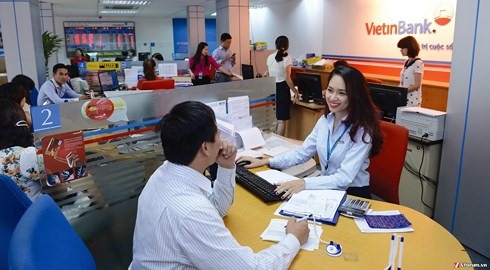Some commercial banks appreciated the US dollar after last week’s interest rate hike by the US Federal Reserve (Fed). Experts, however, have said the exchange rate between the US dollar and Vietnamese dong is likely to remain relatively stable throughout the year.

Some commercial banks appreciated the US dollar after last week’s interest rate hike by the US Federal Reserve (Fed). Experts, however, have said the exchange rate between the US dollar and Vietnamese dong is likely to remain relatively stable throughout the year.
In its first policy meeting under new Fed chief Jerome Powell on Wednesday, Fed lifted its benchmark overnight lending rate by a quarter of a percentage point to a range of 1.50 per cent to 1.75 per cent.
After this rise, Fed is predicted to have at least two more hikes for 2018, highlighting its growing confidence that tax cuts and government spending will boost the economy and inflation and spur more aggressive future controls.
After the Fed’s decision, domestic commercial banks also increased their US$/VND exchange rate.
On Friday Vietcombank and BIDV listed the dollar at VND22,750 and VND22,820 for buying and selling, respectively, up by VND15 against the previous day.
A rise of VND9 was seen at Vietinbank, which quoted the dollar at VND22,750 and VND22,820 for buying and selling, respectively.
At ACB, the US dollar was traded at VND22,760 for buying and VND22,830 for selling, an increase of VND20 in both compared to Thursday.
The green back was bought at VND22,735 and sold at VND22,820 at Techcombank, up by VND10 against the previous day.
State Bank of Viet Nam yesterday set its reference US$/VND exchange rate at VND22,455 per dollar, up by VND3 from the previous day. With the current +/- three percent US$/VND trading band, the ceiling exchange rate is VND23,133 per dollar, while the floor rate is VND21,789.
The dong has so far devalued by some VND90 against the dollar compared to the period before Tet (Lunar New year), causing concern for importing firms. However, experts point out many factors supporting the stability of the exchange rate this year, such as high foreign reserves and significant amounts of foreign direct investment, official development assistance and foreign indirect investment.
Expert To Trung Thanh from the National Economics University told cafef.vn that with large foreign reserves of nearly US$60 billion, the central bank was fully capable of stabilising the exchange rate this year.
However, Thanh noted that Viet Nam would suffer some disadvantages if it wanted to stabilise the exchange rate. He explained that if the exchange rate stabilised, the dong could be appreciated higher, affecting the competitiveness of Vietnamese exports.
The stable exchange rate may also cause domestic firms to prefer imported input material for their production instead of local materials, he said.
But the exchange rate stability was sure to bring more benefits, he added. Besides contributing to controlling inflation and stabilising macroeconomic factors, forex stability will also help reduce the pressure on public debts, he said. – VNS





